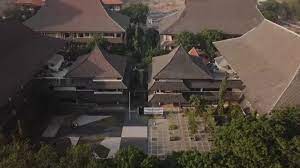SEJARAH
The first PGSD curriculum in 2006 refers to the Competency Standards for Elementary School Teachers with a minimum of 148 credits. There is an annual updating of the course materials following the development of science and technology and the needs of stakeholders. In 2016, the curriculum was restructured according to the Indonesian National Qualifications Framework (KKNI) and the National Higher Education Standards (SNPT). This curriculum is valid until 2019. In 2020, the curriculum was adjusted based on the latest government policy that is Independent Learning Independent Campus (MBKM). This curriculum provides opportunities for students to study for 1 semester which is equivalent to 20 credits at the same university and 2 semesters which is equivalent to 40 credits to study outside of the college. It can be in the form of student exchanges between universities at home or abroad.
Based on the Tracer Study data, the majority of alumni of Elementary Teacher Education in 2019-2020 receiving jobs one month after graduation. In addition, 124 out of 169 alumni were receiving jobs less than 6 months, 0 alumni were entrepreneurs and 4 alumni were continuing their studies. It can also be seen from the population of the Tracer Study there were 75.5% of alumni who work less than 6 months, 0% as entrepreneurs, and 2.3% who carry out further studies. Moreover, from 670 alumni in total, there were 14.18% of alumni who work, 4.93% who are entrepreneurs, and 0.54% alumni who continue their studies. The majority of graduates work as elementary school teachers in various regions.
LAB
- LAB BAHASA & IPS
- LAB KOMPUTER
- LAB MATEMATIKA & IPA
- LAB MICROTHEACING
PROGRAM STUDI
Vision
Excellent in organizing elementary school teacher education programs according to the development of science and technology.
Missions
1) Organizing quality education programs for educators in elementary schools.
2) Researching the field of elementary education.
3) Organize community service based on research results in the field of quality elementary school teacher education.
4) Build and expand cooperation networks with stakeholders at local, national, and international levels.
 MASUK PTN
MASUK PTN